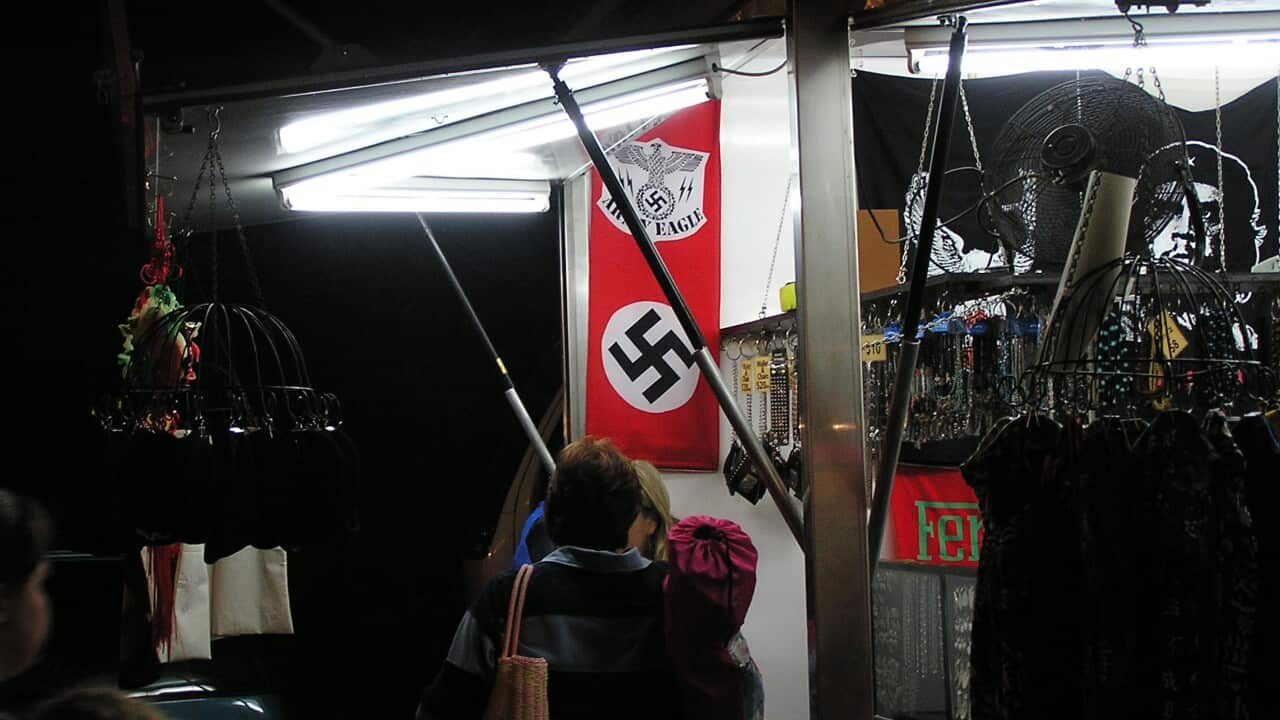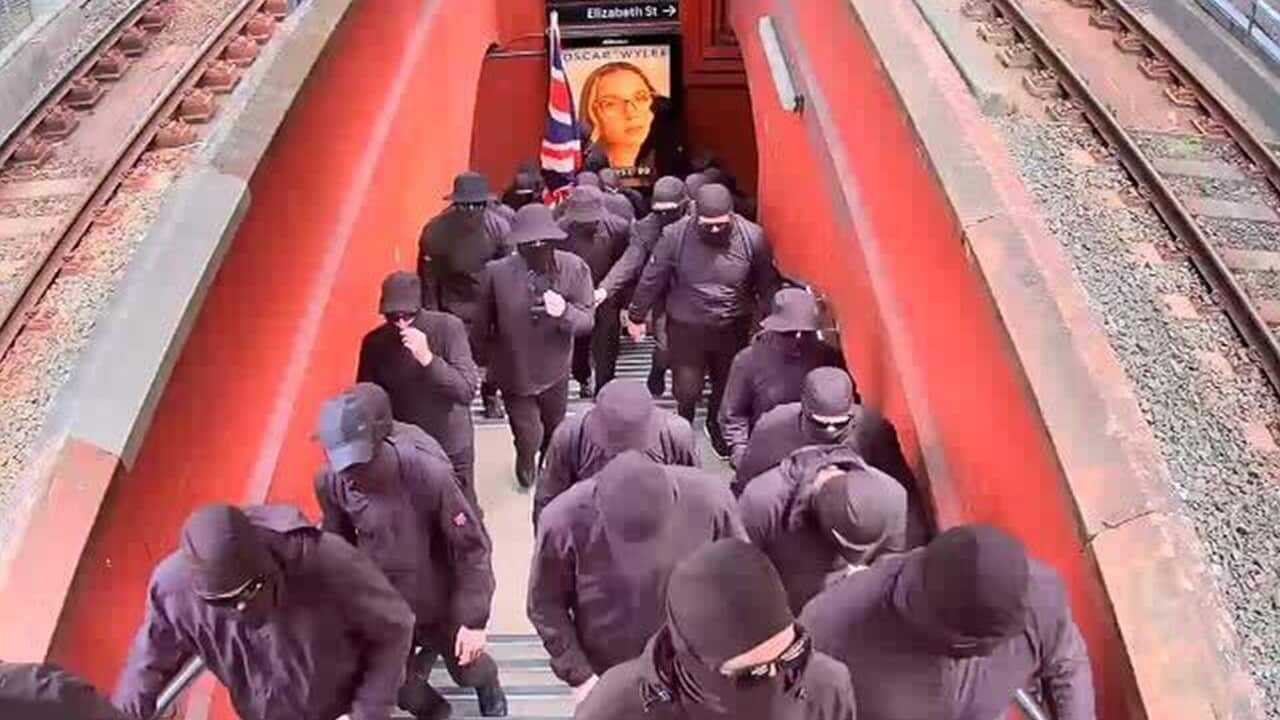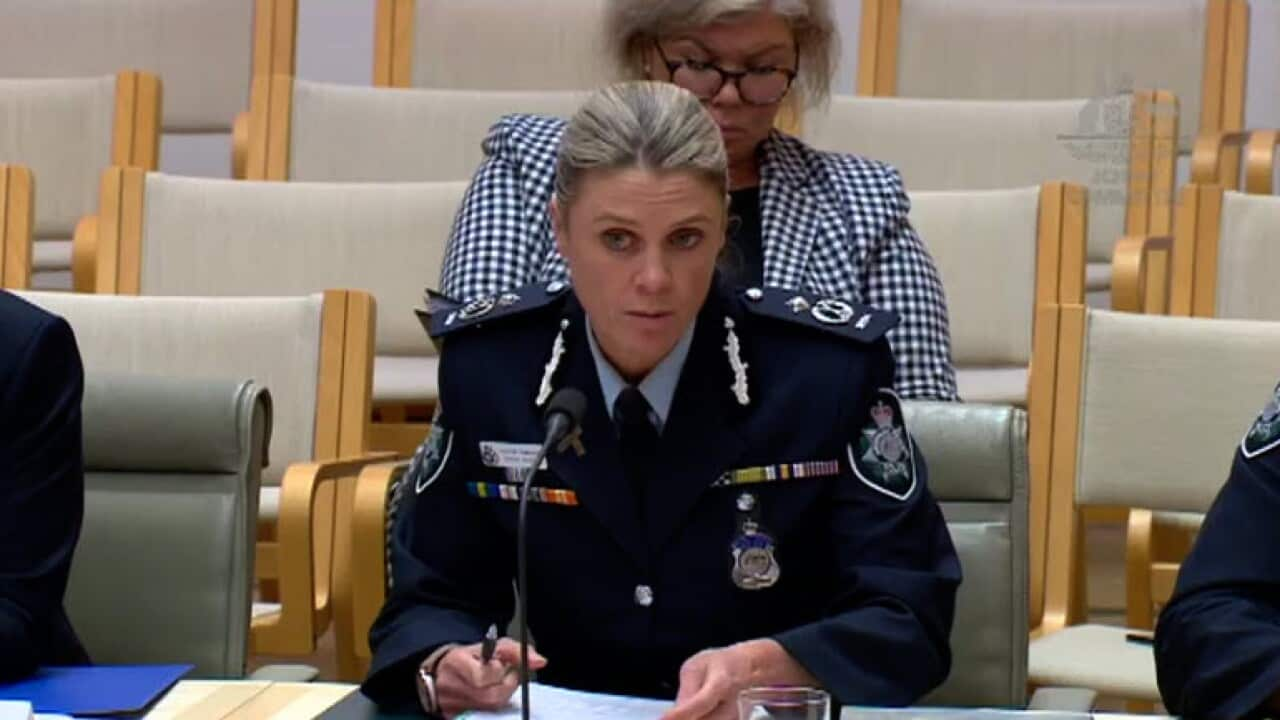Items bearing Nazi imagery continue to pour into Australia more than six months into a national ban on the symbols, the Department of Home Affairs says.
In its submission to a parliamentary inquiry into right-wing extremist movements in Australia, the department said Australian Border Force had observed "an increasing volume of goods" with imagery linked to nationalist and racist violent extremism groups — with Nazi symbols of particular concern.
Home Affairs said "the importation into Australia of Nazi memorabilia, both historically genuine items and modern recreations" had not slowed since the laws were passed.
"Where these goods are imported in quantities which indicates the goods are likely to be traded, the Australian Border Force refers the goods to the Australian Federal Police (AFP) to consider investigation under the criminal code," the department's submission reads.
The laws — , and the trade and display of products bearing the Hakenkreuz, the traditional swastika symbol appropriated by the Nazi party — came into effect in January this year.
Attorney-General Mark Dreyfus said at the time that they would stop people profiting "from acts and symbols that celebrate the Nazis and their evil ideology".
In its submission, Home Affairs also wrote that extremists were moving away from traditional social media platforms to smaller ones that were "unable or unwilling to moderate content".
"The nexus between online violent extremist content and youth radicalisation to violent extremism remains a concern," the department's submission reads.
"Young people are particularly susceptible to radicalisation when exposed to violent extremist propaganda online, as these narratives can resonate with feelings of alienation, unease about the future, and mistrust of authority.
"Violent extremists are also exploiting online gaming platforms to radicalise and recruit an increasingly younger cohort of internet users."
Meanwhile, the Australian Security Intelligence Organisation (ASIO) wrote in its submission that online platforms remained "significant enablers of radicalisation".
ASIO also said extremists were increasingly using encrypted messaging platforms in a bid to avoid detection.
"The changing nature of terrorism is shaped by global events, emerging technologies, and broader social trends that include online radicalisation and the growth of extreme views, conspiracies and grievances," ASIO wrote in its submission.
ASIO Director-General Mike Burgess that end-to-end encryption used by some messaging platforms — stops data from being read or secretly modified while being transferred between devices — was hampering the spy agency's ability to target extremists.
This is despite that were designed to force tech companies to help law enforcement agencies access encrypted messages.
Burgess said at that that he was not seeking new laws or powers, but wanted tech companies to "uphold existing laws".
The parliamentary committee examining right-wing extremist movements in Australia will question Home Affairs, ASIO and AFP officials on Wednesday about how violent extremism is being tackled and the threat it poses to Australia.
The Islamophobia Register Australia and the Human Rights Commission are also set to give evidence about extremists at the hearing.
With the Australian Associated Press.











